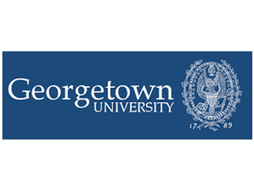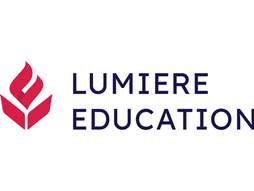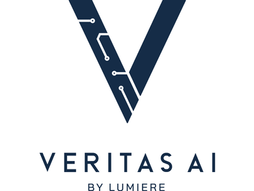Summer Engineering Seminar (SES) - Is It a Worthwhile Experience?
If you’re looking to step into engineering, there’s a lot you can experience while still in high school to better prepare you for your journey. Pre-college programs in engineering can offer you a unique opportunity to build your skills, deepen your knowledge, and enhance your profile for college applications. They are a demonstration of your initiative, your genuine passion for a chosen field, and your willingness to put in extra effort in upskilling yourself.
Moreover, they also function as teasers, giving you a glimpse of what college engineering is like and what is expected of you. Today’s blog post on one such experiential program, the Summer Engineering Seminar or SES.
What is the Summer Engineering Seminar?
The SES, hosted by the School of Engineering at Santa Clara University, is a fully-funded, five-day immersion summer experience for high school sophomores and juniors passionate about engineering. Through a series of introductory workshops blending lectures and hands-on activities across various engineering disciplines, SES gives you a thorough introduction to college-level engineering.
In 2024, the university will celebrate the 35th Annual SES, and has been recognized by INSIGHT Into Diversity magazine as an inspiring program in STEM.
Through this program, Santa Clara University emphasizes education in "service to society, especially on behalf of those in greatest need" as per their credo and particularly encourages students from underrepresented communities to participate.
Is the SES prestigious?
While Santa Clara University does not feature high on the list of top universities for engineering, the SES is nonetheless a valuable program. Its small batch size and fully funded nature ensure that there is plenty of competition in admissions and high selectivity.
The structure of the course itself guarantees that you’ll get a good learning experience should you get in. Overall, we would rate the SES as not very prestigious - useful for the experience but not worth it if you’re looking purely to pad out your profile.
Who is eligible to apply?
To be eligible for the SES, you must:
Have completed your sophomore year of high school by July 1, 2025.
- If you’ve attended SES the year prior, there’s a 2nd advanced session you’re eligible for!
- While SES prioritizes sophomores, limited spots are also available for juniors.
Have a keen interest in engineering.
Have not been exposed to the engineering profession.
- Preference will be given to those who lack the means of access to such courses and/or are from traditionally underrepresented backgrounds.
How does the application process work?
The application process for SES is as follows:
Applications for the 2024 SES will open in January 2024.
You'll need to choose between one of the two introductory sessions, or the advanced session if you're a returning participant.
The online application form will be due by mid-March 2024.
The application also requires a 500-word essay addressing the following questions: What makes you an ideal candidate for the SES program? How do you think you could benefit from the program?
Applications will be evaluated by March end on the basis of your academic performance as well as on need, in line with the eligibility criteria.
How is the SES structured?
Throughout the five days of the course, you’ll be attending introductory workshops across:
Bioengineering
Civil, Sustainable and Environmental Engineering
Computer Science and Engineering
Electrical and Computer Engineering
Mechanical Engineering
Between these blended lectures, you’ll also be completing your own engineering projects and experiencing university life on the Santa Clara campus through afternoon and evening recreational activities.
Pros and Cons of SES
Pros:
The program offers a solid introduction to the fundamentals of engineering: With its broad, diverse curriculum, SES works as a good first step into college-level engineering and will give you a solid introduction to its many fields.
You’ll get to experience college life and academics: You’ll be living at the Santa Clara campus in dorms and experiencing all the joys and rigors of campus life for the five days of the program.
The program is fully funded: Perhaps the strongest reason to consider the SES, it’s a fully funded pre-college program, making it an incredibly valuable option if you have financial need or otherwise lack access to engineering education.
Cons:
It’s quite selective: SES prides itself on small cohort sizes to be able to provide dedicated attention to participants, and since it’s a free program, there’s a lot of competition to get in. Despite Santa Clara not being a top university, these two factors still make it challenging to get admitted to the SES. You should be aware while applying that chances are you might not make the cut and should have a backup plan in place.
It’s not prestigious: According to US News & World Report, Santa Clara University is ranked between 183 and 202 for Best Engineering Schools, making the prestige value of the SES negligible. If you want to boost your profile for college applications, this won’t help you with that goal.
There is no remote or online option: SES is a purely residential program, making it difficult to attend for students not located in Santa Clara and especially those with limited funds.
There is limited learning to be had: The program only lasts five days, and no matter how good the workshops, there’s only so much you’ll be able to learn in that time. The SES can provide you a good introduction, but relatively little in the way of depth.
Our review
In conclusion, the Summer Engineering Seminar (SES) at Santa Clara University is a comprehensive introductory program for a sophomore keen on pursuing engineering. This is doubly true if you’ve not been exposed to the field previously or are from a traditionally underrepresented community. While it won’t provide the depth and intensity of longer duration, more rigorous pre-college programs, it might just be the springboard you need to take the first step on your engineering journey.
If you're looking for a real-world internship that can help boost your resume while applying to college, we recommend Ladder Internships!
Ladder Internships is a selective program equipping students with virtual internship experiences at startups and nonprofits around the world!
The startups range across a variety of industries, and each student can select which field they would most love to deep dive into. This is also a great opportunity for students to explore areas they think they might be interested in, and better understand professional career opportunities in those areas.
The startups are based all across the world, with the majority being in the United States, Asia and then Europe and the UK.
The fields include technology, machine learning and AI, finance, environmental science and sustainability, business and marketing, healthcare and medicine, media and journalism and more.
You can explore all the options here on their application form. As part of their internship, each student will work on a real-world project that is of genuine need to the startup they are working with, and present their work at the end of their internship. In addition to working closely with their manager from the startup, each intern will also work with a Ladder Coach throughout their internship - the Ladder Coach serves as a second mentor and a sounding board, guiding you through the internship and helping you navigate the startup environment.
Cost: $1490 (Financial Aid Available)
Location: Remote! You can work from anywhere in the world.
Application deadline: April 16 and May 14
Program dates: 8 weeks, June to August
Eligibility: Students who can work for 10-20 hours/week, for 8-12 weeks. Open to high school students, undergraduates and gap year students!
Additionally, you can also work on independent research in AI, through Veritas AI's Fellowship Program!
Veritas AI focuses on providing high school students who are passionate about the field of AI a suitable environment to explore their interests. The programs include collaborative learning, project development, and 1-on-1 mentorship.
These programs are designed and run by Harvard graduate students and alumni and you can expect a great, fulfilling educational experience. Students are expected to have a basic understanding of Python or are recommended to complete the AI scholars program before pursuing the fellowship.
The AI Fellowship program will have students pursue their own independent AI research project. Students work on their own individual research projects over a period of 12-15 weeks and can opt to combine AI with any other field of interest. In the past, students have worked on research papers in the field of AI & medicine, AI & finance, AI & environmental science, AI & education, and more! You can find examples of previous projects here.
Location: Virtual
Cost:
$1,790 for the 10-week AI Scholars program
$4,900 for the 12-15 week AI Fellowship
$4,700 for both
Need-based financial aid is available. You can apply here.
Application deadline: On a rolling basis. Applications for fall cohort have closed September 3, 2023.
Program dates: Various according to the cohort
Program selectivity: Moderately selective
Eligibility: Ambitious high school students located anywhere in the world. AI Fellowship applicants should either have completed the AI Scholars program or exhibit past experience with AI concepts or Python.
Application Requirements: Online application form, answers to a few questions pertaining to the students background & coding experience, math courses, and areas of interest.
Lumiere Research Scholar Program
If you’re looking for the opportunity to do in-depth research on topics in STEM or engineering, you could also consider applying to one of the Lumiere Research Scholar Programs, selective online high school programs for students I founded with researchers at Harvard and Oxford. Last year, we had over 4000 students apply for 500 spots in the program! You can find the application form here.
Stephen is one of the founders of Lumiere and a Harvard College graduate. He founded Lumiere as a PhD student at Harvard Business School. Lumiere is a selective research program where students work 1-1 with a research mentor to develop an independent research paper.
Image Source: Santa Clara University




